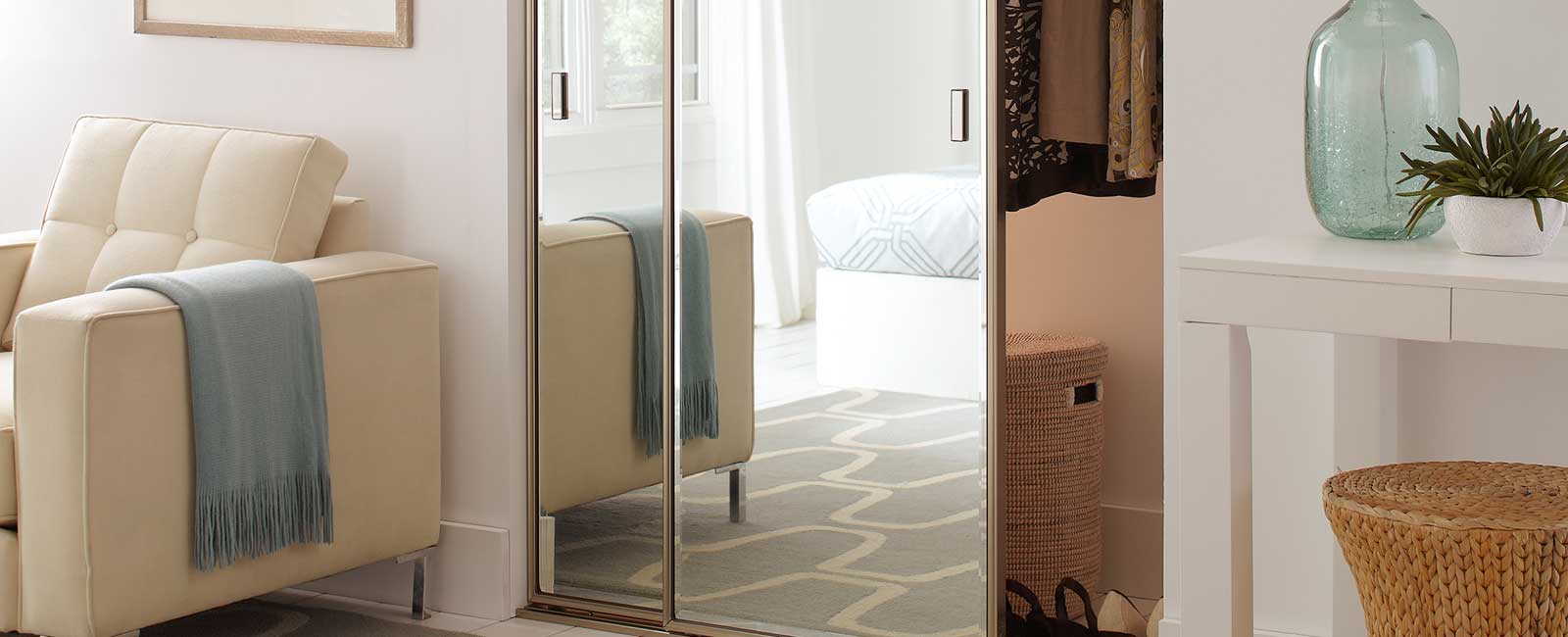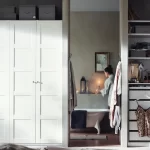Closet doors play a crucial role in enhancing the functionality and aesthetics of a space. When it comes to choosing the right closet doors, two popular options are sliding doors and hinged doors. Each option comes with its own set of advantages and disadvantages. In this essay, we will explore the pros and cons of sliding and hinged closet doors, enabling readers to make an informed decision based on their individual needs and preferences.
Pros of Sliding Closet Doors
Sliding closet doors have gained popularity for their unique features and benefits. Here are some of the pros associated with sliding doors:
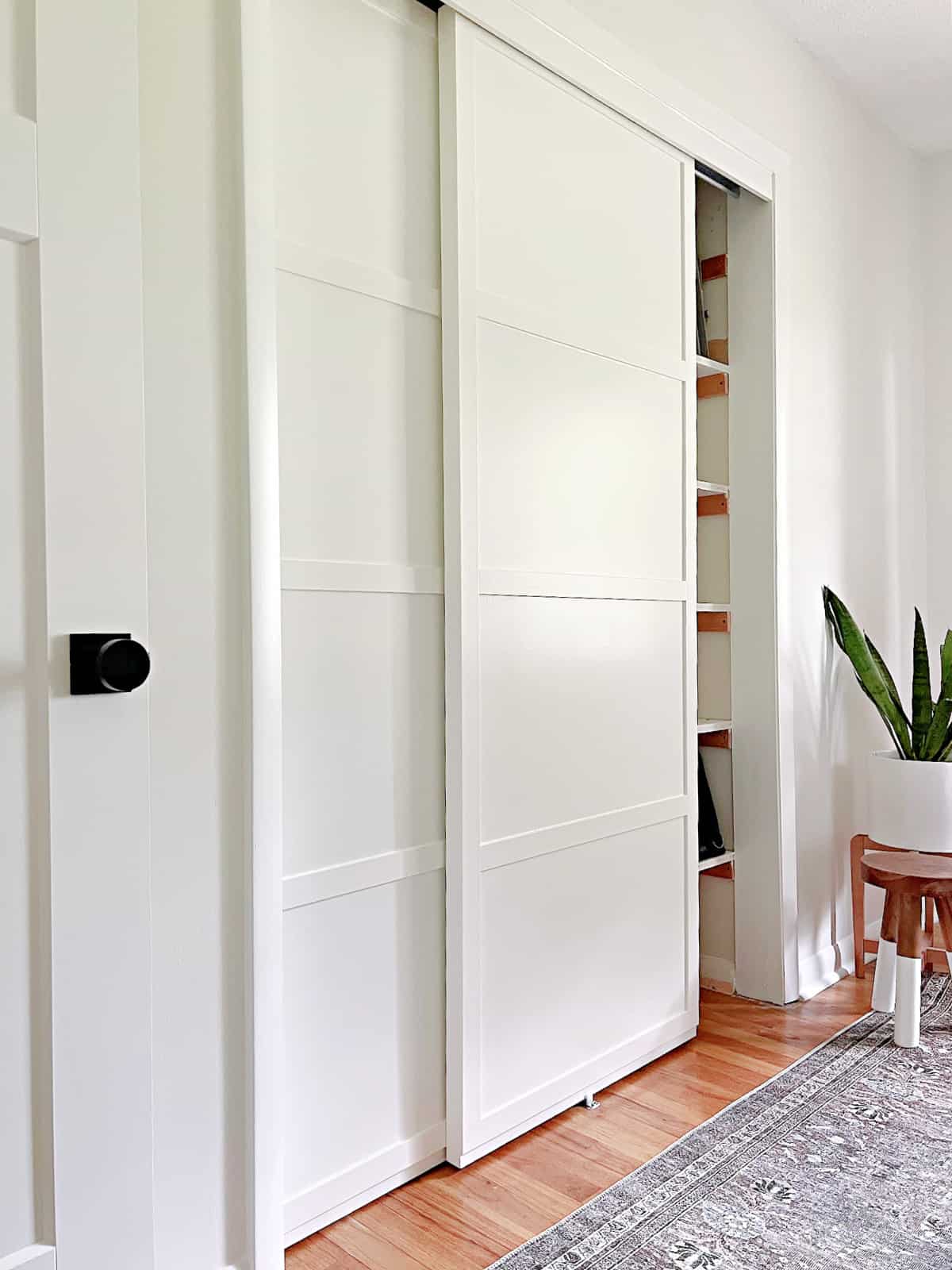
- Space-saving benefits
One of the primary advantages of sliding closet doors is their ability to save space. Unlike hinged doors that require swing clearance, sliding doors operate by gliding along a track. This allows for more efficient use of space, making them ideal for small rooms or areas with limited space.
- Modern and sleek appearance
Sliding closet doors often feature a modern and sleek design that can enhance the overall aesthetic appeal of a room. They are available in various materials, such as glass, wood, or metal, and can be customized to suit different interior styles. Sliding doors can add a touch of elegance and sophistication to any space.
- Easy accessibility and visibility
Sliding doors provide easy access to the contents of a closet. With a simple slide, users can quickly view and retrieve their belongings without the need for extra space for door swing. Sliding doors can also incorporate large glass panels, allowing for better visibility and making it easier to find items within the closet.
- Smooth and quiet operation
Sliding doors operate on a track system, which enables them to glide smoothly and quietly. This ensures minimal disturbance, making them a perfect choice for bedrooms or areas where noise reduction is desired. The smooth operation of sliding doors also adds to their overall user-friendliness.
Cons of Sliding Closet Doors
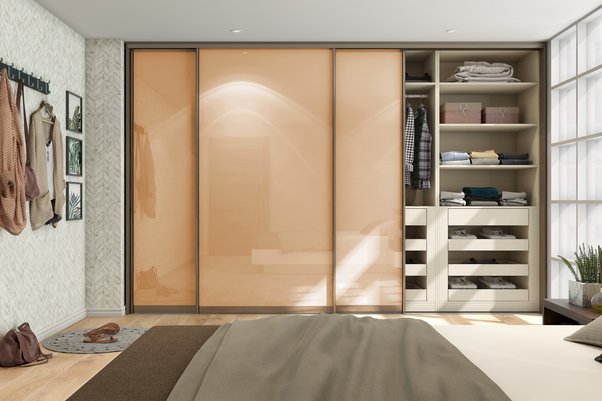
While sliding closet doors offer numerous advantages, they also come with a few drawbacks that should be considered. Here are some of the cons associated with sliding doors:
- Limited access to the entire closet space
One of the main disadvantages of sliding doors is that they provide access to only half of the closet space at a time. This can make it challenging to reach items located at the back or sides of the closet. However, this issue can be mitigated by opting for sliding doors with multiple panels that can be independently moved.
- Potential for off-track issues
Over time, sliding doors may experience issues such as becoming misaligned or coming off the track. This can hinder their smooth operation and require additional maintenance or repairs. Regular cleaning and maintenance of the track are necessary to prevent debris buildup and ensure proper functionality.
- Challenging installation process
Installing sliding closet doors can be more complex compared to hinged doors. The track system needs to be properly aligned and securely installed, requiring precise measurements and attention to detail. Improper installation may result in doors that do not slide smoothly or become prone to off-track issues.
Pros of Hinged Closet Doors
Hinged closet doors have been a traditional choice for many homeowners, offering a classic appeal and several advantages. Here are some of the pros associated with hinged doors:
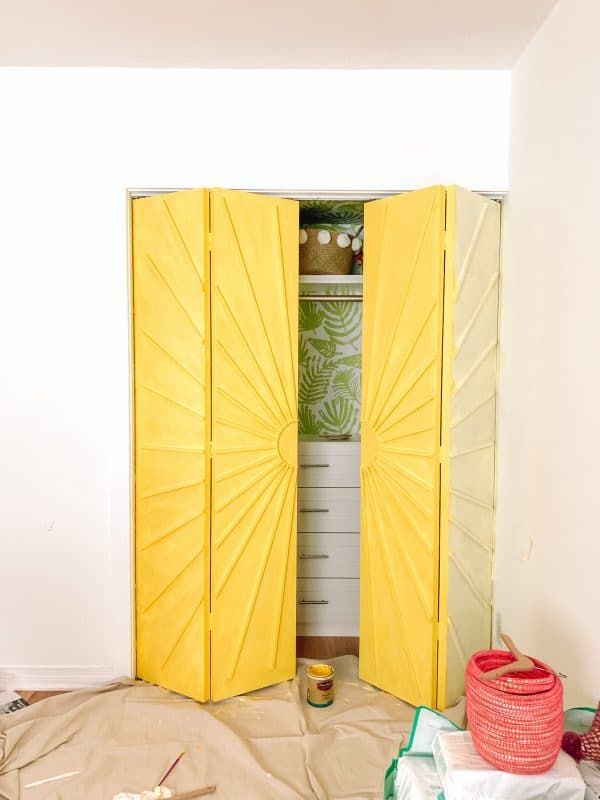
- Full access to the entire closet space
Hinged doors provide complete access to the entire closet space as they swing open fully. This makes it easier to view and reach items throughout the entire closet, allowing for better organization and convenience.
- Classic and timeless appeal
Hinged doors have a classic and timeless style that can complement various interior designs. They often feature decorative elements such as panels or raised moldings, adding a touch of elegance and sophistication to the room.
- Simple and straightforward installation
Compared to sliding doors, hinged doors generally have a simpler installation process. Hinges are attached to the frame and the door, and once correctly installed, the doors swing open and closed effortlessly. This ease of installation can be advantageous for those who prefer a DIY approach or have limited experience with home improvement projects.
- Easier to clean and maintain
Installing hinged doors is generally straightforward, requiring basic tools and skills. They can be easily installed by homeowners or professionals, saving time and effort. Additionally, hinged doors are easier to clean and maintain, as they don’t have intricate track systems that can accumulate dust and debris.
Cons of Hinged Closet Doors
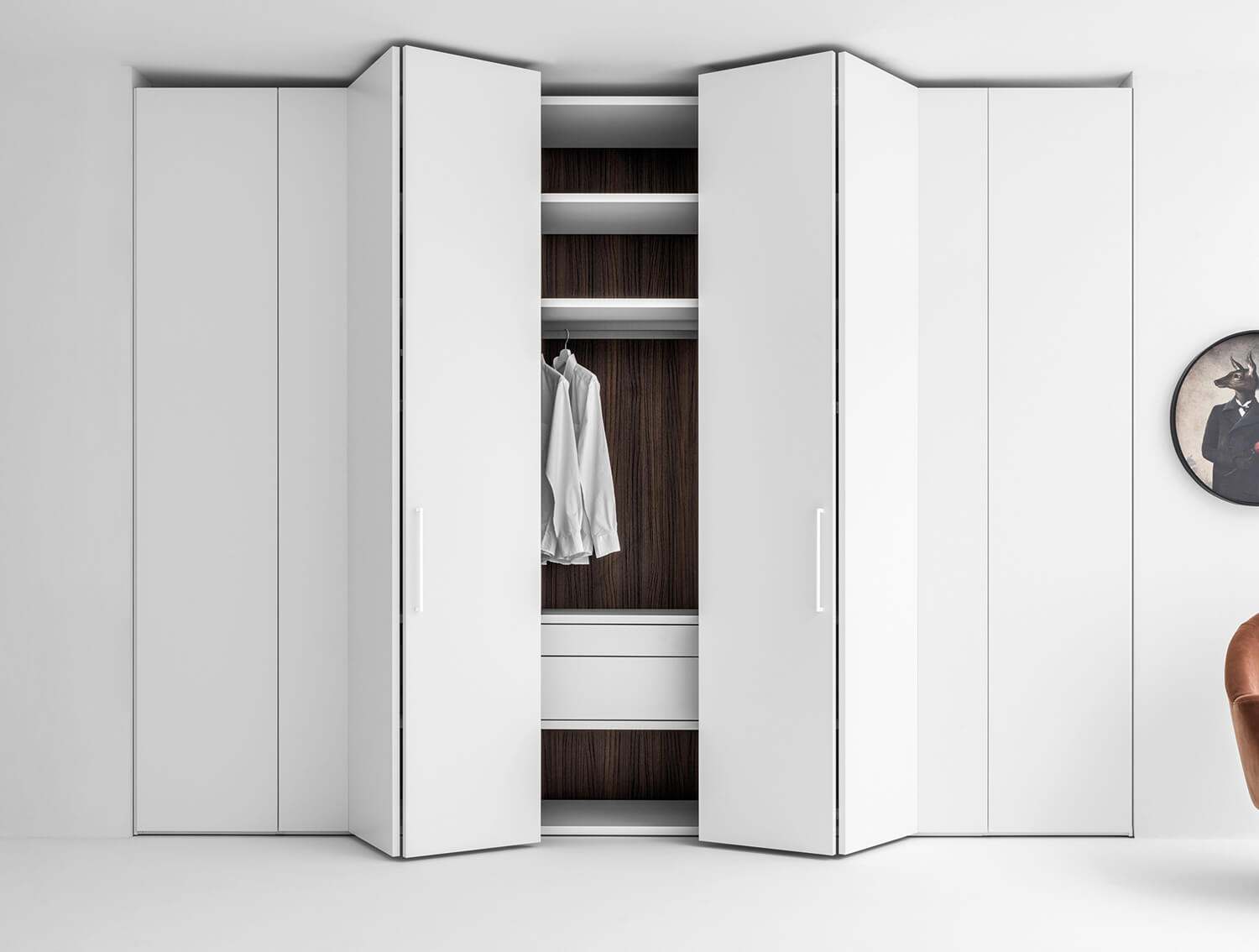
- Space requirements
Hinged doors require swing clearance, which means they need enough space in front of the closet to fully open. This can be a limitation in smaller rooms or areas with limited space.
- Furniture placement
The swing of hinged doors can interfere with furniture placement near the closet, making it challenging to optimize the layout of the room.
- Noise and privacy
Hinged doors can be noisier compared to sliding doors, especially if they have a tendency to slam shut. Additionally, they may offer less privacy as they leave gaps between the door and the frame.
- Accessibility issues
Hinged doors can obstruct access to parts of the closet when opened fully. This can make it more difficult to reach items in the corners or back of the closet.
- Style limitations
While hinged doors offer a classic and timeless appeal, they may not be suitable for every interior style. Modern or minimalist designs may benefit more from the sleek look of sliding doors.
Factors to Consider When Choosing
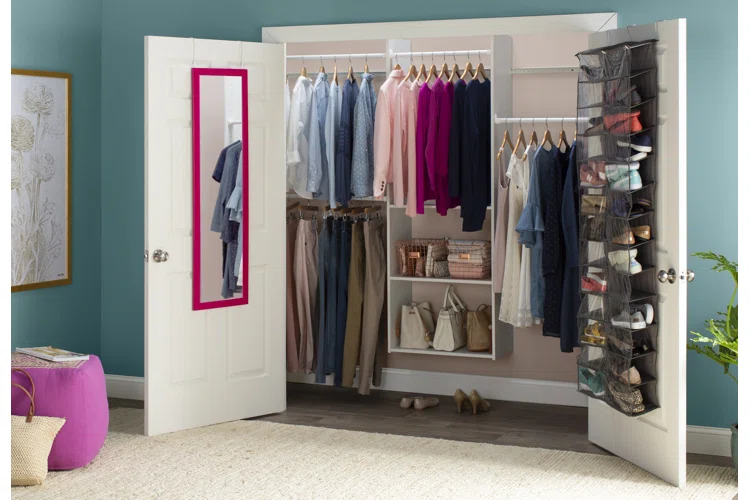
When choosing between sliding and hinged closet doors, there are several important factors to consider. These factors can help homeowners make an informed decision that aligns with their specific needs and preferences. Here are some key points to consider:
- Space Availability: Evaluate the available space in the room and the layout of the closet area. Sliding doors are ideal for small rooms or tight corners where clearance for hinged doors may be limited. On the other hand, hinged doors require additional clearance for their swing, which may not be suitable for cramped spaces.
- Aesthetic Preference: Consider the overall design style and aesthetic of the room. Sliding doors offer a modern and sleek look, often featuring large glass panels that allow for natural light flow. These doors can create a minimalist and contemporary ambiance. Hinged doors, on the other hand, provide flexibility and customization options, allowing homeowners to choose materials, finishes, and panel styles that match their interior design scheme.
- Accessibility and Functionality: Think about the practicality of the doors in terms of accessibility and functionality. Sliding doors are easy to operate and provide full access to the entire width of the closet. This accessibility can be especially beneficial for deep closets or individuals with limited mobility. Hinged doors, however, open fully, allowing for complete visibility and easy organization of items. They also offer the option to install mirrors, providing a full-length reflection and the illusion of a larger space.
- Maintenance and Durability: Consider the long-term maintenance and durability of the doors. Sliding doors may require regular maintenance, such as cleaning the tracks or lubricating the rollers, to ensure smooth operation. Hinged doors, on the other hand, are generally more durable and require minimal maintenance. The hinges may occasionally need lubrication or adjustment, but overall, hinged doors are known for their longevity.
- Cost Considerations: Evaluate the budget for the project. Sliding doors are often more affordable compared to hinged doors. They require fewer materials and hardware, making them a cost-effective option, especially for larger closets. Hinged doors, however, can be more expensive due to their construction, hinges, and customization options. They may also require professional installation, adding to the overall cost.
General Tips for both Sliding and Hinged Closet Doors
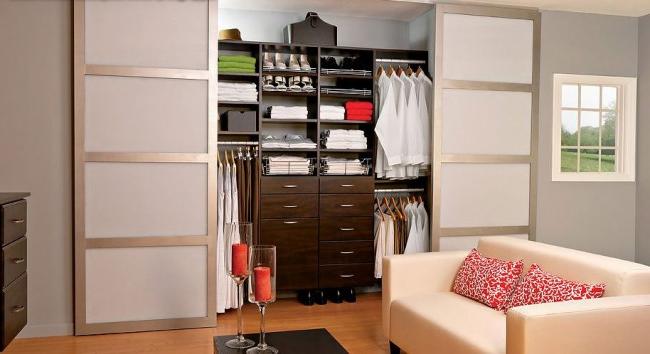
- Always use good quality hardware for cupboards for long-term durability which are rust-proof and have a good finishing and are smooth to swing. (in case of sliding cupboards).
- Make sure to get these tracks to have some lubricant filled or keep them checked by carpenters periodically.
- If you are getting it customized make sure you are working with skilled labor.
- Always avoid overstuffing of your wardrobe with clothes because they can come in the middle of panels of hinged door or tracks of sliding and this can make the smooth functioning suffer.
